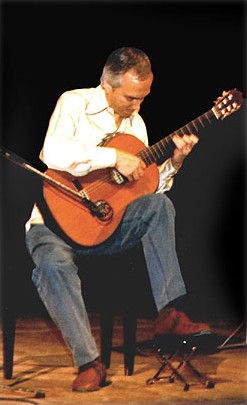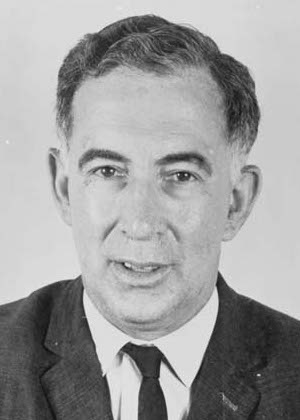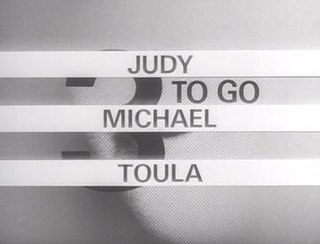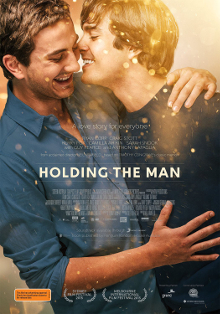Related Research Articles

Dennis Lee Hopper was an American actor and film director. He is known for his roles as mentally disturbed outsiders and rebels. He earned prizes from the Cannes Film Festival and Venice International Film Festival as well as nominations for two Academy Awards, a Primetime Emmy Award and two Golden Globe Awards. Hopper studied acting at the Old Globe Theatre in San Diego and the Actors Studio in New York. Hopper also began a prolific and acclaimed photography career in the 1960s.

John Christopher Williams is an Australian-born classical guitarist renowned for his ensemble playing as well as his interpretation and promotion of the modern classical guitar repertoire. In 1973, he shared a Grammy Award in the Best Chamber Music Performance category with fellow guitarist Julian Bream for Together. Guitar historian Graham Wade has said that "John is perhaps the most technically accomplished guitarist the world has seen."

Sir Zelman Cowen, was an Australian legal scholar and university administrator who served as the 19th Governor-General of Australia, in office from 1977 to 1982.

Trinity College is the oldest residential college of the University of Melbourne, the first university in the colony of Victoria, Australia. The college was opened in 1872 on a site granted to the Church of England by the government of Victoria. In addition to its resident community of 380 students, mostly attending the University of Melbourne, Trinity's programs includes the Trinity College Theological School, an Anglican training college which is a constituent college of the University of Divinity; and the Pathways School which runs Trinity College Foundation Studies and prepares international students for admission to the University of Melbourne and other Australian tertiary institutions, as well as summer and winter schools for young leaders and other short courses.

Charles Manning Hope Clark, was an Australian historian and the author of the best-known general history of Australia, his six-volume A History of Australia, published between 1962 and 1987. He has been described as "Australia's most famous historian", but his work has been the target of much criticism, particularly from conservative and classical liberal academics and philosophers.

WEHI, previously known as the Walter and Eliza Hall Institute of Medical Research, and as the Walter and Eliza Hall Institute, is Australia's oldest medical research institute. Sir Frank Macfarlane Burnet, who won the Nobel Prize in 1960 for his work in immunology, was director from 1944 to 1965. Burnet developed the ideas of clonal selection and acquired immune tolerance. Later, Professor Donald Metcalf discovered and characterised colony-stimulating factors. As of 2015, the institute hosted more than 750 researchers who work to understand, prevent and treat diseases including blood, breast and ovarian cancers; inflammatory diseases (autoimmunity) such as rheumatoid arthritis, type 1 diabetes and coeliac disease; and infectious diseases such as malaria, HIV and hepatitis B and C.

Prince Alfred College is a private, independent, day and boarding school for boys, located on Dequetteville Terrace, Kent Town – near the centre of Adelaide, South Australia. Prince Alfred College was established in 1869 by the Methodist Church of Australasia, which amalgamated with other Protestant churches in 1977 to form the Uniting Church in Australia.

Trinity Grammar School, Kew is an independent, Anglican day and boarding school for boys, located in Kew in Melbourne, Australia.
John Clifford Farrar is an Australian music producer, songwriter, arranger, singer, and guitarist. As a musician, Farrar is a former member of several rock and roll groups including The Mustangs (1963–64), The Strangers (1964–70), Marvin, Welch & Farrar (1970–73), and The Shadows (1973–76). In 1980, he released a solo eponymous album. As a songwriter and producer, he worked with Olivia Newton-John from 1971 to 1989. He wrote her U.S. number-one hit singles: "Have You Never Been Mellow" (1975), "You're the One That I Want", "Hopelessly Devoted to You" (1978), and "Magic" (1980). He also produced the majority of her recorded material during that time, including her number-one albums, If You Love Me, Let Me Know (1974), Have You Never Been Mellow (1975), and Olivia's Greatest Hits Vol. 2 (1982). He was a co-producer of the soundtrack for the film Grease (1978).
Grok Magazine is an Australian free student magazine. The magazine is written and produced by Curtin University students and published by the Curtin Student Guild. The magazine was started in about 1970 and named after a word indicating deep understanding that was introduced in Robert Heinlein's novel Stranger in a Strange Land. In 2009, five issues were published, and approximately 10,000 copies distributed per issue. These are distributed on the Curtin Bentley campus in Western Australia, as well as to many street location across the Perth metro area.
Tamam Shud is an Australian psychedelic, progressive and surf rock band, which formed in Newcastle in 1964. The initial line-up were known as The Four Strangers with Eric Connell on bass guitar, Dannie Davidson on drums, Gary Johns on rhythm guitar and Alex "Zac" Zytnik on lead guitar. At the end of that year Johns was replaced by Lindsay Bjerre on guitar and vocals as they trimmed their name to the Strangers. By late 1965 they had become the Sunsets. They took the name Tamam Shud in late 1967 after replacing Connell with Peter Barron on bass guitar. The group released two albums, Evolution (1969) – after which Tim Gaze replaced Zytnik on lead guitar – and Goolutionites and the Real People (1970) before disbanding in 1972. After a lengthy hiatus they reformed in 1993 to release a third album, Permanent Culture in 1994, but disbanded again in 1995. Beginning in 2008 the group worked together periodically on new material: it took eight years to complete their fourth album, Eight Years of Moonlight.

John Peter Russell was an Australian impressionist painter.

Cecil Lauriston Kellaway was a South African character actor. He was nominated for the Academy Award for Best Supporting Actor twice, for The Luck of the Irish (1948) and Guess Who's Coming to Dinner (1967).

The Westall UFO was a reported UFO sighting in Australia that occurred on 6 April 1966 in Melbourne, Victoria. The object was observed by multiple individuals, including students at Westall High School. Specific details vary between accounts, which increases the difficulty of identification. The sighting has been commemorated with documentaries, reunions, and a local UFO playground.
Cthulhu is a 2000 Australian low budget horror film that was directed, produced, and written by Damian Heffernan. It is mostly based on two Lovecraft stories, "The Thing on the Doorstep" and The Shadow Over Innsmouth. It stars Adam Somes as a young student that discovers that his best friend has become involved in a cult intent on raising Cthulhu. It screened at the Melbourne Underground Film Festival, after which point it was purchased by Channel 9 for screening in Australia as part of their Australian content quota obligations. The film was also purchased by Trend Films in Italy for screening via their Satellite Television network.
The Strangers were an Australian rock band formed in 1961 and existed until 1975. The band started out playing instrumental songs in a style similar to The Shadows, with influences from Cliff Richard. The original line-up was Laurie Arthur, Peter Robinson (bass), Graeme "Garth" Thompson (drums) and Fred Wieland. Robinson had previously played with a local band The Thunderbirds and went on to replace Athol Guy in the Seekers in the late 1970s.

Ken Wayne (1925–1993) was an Australian actor of radio, theatre, film and television. He made his film debut in Sons of Matthew (1949) and appeared in a number of movies including Dust in the Sun (1958). He was also well known for his work in radio, particularly for playing private eye Larry Kent in the series I Hate Crime. According to colleague and friend Charles Tingwell, being so identified with Larry Kent hurt Wayne from being cast in other roles.
Nigel Buesst is an Australian filmmaker from Melbourne. After graduating B.Com in 1960 from Melbourne University he headed overseas to London and worked as an assistant editor at Shepperton Studios.

3 to Go is an Australian portmanteau film consisting of three stories—Judy, Michael, and Toula—each presenting a young Australian at a moment of decision about their future. The film was first shown on commercial television in March 1971 and episodes screened individually in cinemas as supporting shorts.

Holding the Man is a 2015 Australian romantic drama film adapted from Timothy Conigrave's 1995 memoir of the same name. It was directed by Neil Armfield and stars Ryan Corr and Craig Stott, with supporting performances from Guy Pearce, Anthony LaPaglia, Sarah Snook, Kerry Fox and Geoffrey Rush. The screenplay was written by Tommy Murphy who also adapted the memoir for the stage play.
References
- ↑ Andrew Pike and Ross Cooper, Australian Film 1900–1977: A Guide to Feature Film Production, Melbourne: Oxford University Press, 1998 p250